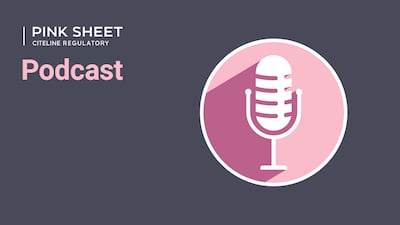Pricing Debate
Doctors are increasingly falling victim to financial scams due to their high incomes, busy schedules, and trust in professional networks. Recognizing the tactics scammers use and the reasons behind physicians’ susceptibility is essential for protecting medical professionals.
Senate HELP Committee chair Sanders trying to broker a deal between Novo Nordisk and the major pharmacy benefit managers that will lead to lower list prices.
Alternatives to the top pharmacy benefits managers argue health plan-PBM integration is leading to anti-competitive tactics that make it impossible for some employers to switch PBMs.
An effort to change the US Food and Drug Administration’s conclusion that its obesity treatment candidate retatrutide is a drug and not a biologic could give the product more time with unrestricted pricing in Medicare, among other benefits.
Industry says it is ready to work with the government on the recommendations from a major review of Australia’s health technology assessment system that covers areas such as discount rate reductions and setting up a separate budgetary allocation to temporarily subsidize access to certain drugs.
CBER Director Peter Marks said recent leaps in gene therapy science have not been matched by more affordable manufacturing technology and that there is a need to set a cost-effectiveness target for the field.
US lawmakers will undoubtedly continue to work on pharmacy benefit manager reform legislation in 2025, given its bipartisan support. But policies impacting rebates that could lead to higher premiums in Part D may be a tough sell in the midst of the benefit redesign.
Neither Kamala Harris nor Donald Trump mentioned drug pricing reforms in their presidential convention speeches.
While the drug regulator has approved Eisai/Biogen’s early Alzheimer’s disease treatment, the health technology assessment institute is worried that its benefits are too small to justify its costs – a concern that Eisai has pledged to address.
Congressional Budget Office responses to questions from US lawmakers on pharmacy benefit managers could add to the momentum for PBM reforms to go further than the current leading proposals.
Pink Sheet reporter and editors discuss the take-aways from the landmark first Medicare negotiated drug prices and what additional information remains outstanding.
But the amount of savings realized when the Medicare negotiated prices go into effect in 2026 remains the subject of debate.
CBO estimated Medicare would get 50% net price reductions under the IRA, but CMS actually garnered 22%. The CBO analysis could not account for some of the particulars of the negotiations, but some health policy experts stressed any net gain over private Part D plan negotiation is a win.
Some manufacturers may have the dubious distinction of being targeted in the first and second rounds of the negotiation program, but at least will be familiar with the process the next time.
Net per drug savings achieved by the negotiation process is unclear because many of the products already have significant rebates. The announcement also leaves much of the agency’s negotiation process in the dark.
A Japanese approval for Lilly's Alzheimer's drug donanemab is expected soon following a positive recommendation from the MHLW. The ministry has also announced reimbursement prices for 12 new products including Fabhalta, along with price cuts for Tezspire, Dupixent and competitors following a review.
It appears that the complexity of dealing with older products under the VPAG is the main cause of delays at the health department in sharing reference prices with pharma companies.
Sanofi, Alexion and Eli Lilly argue for changes in England’s health technology assessment and medicine pricing processes that could help patients to access more medicines.
Another House hearing again showcases the bipartisan desire to enact reforms to the US pharmacy benefit management sector. Legislators also sound ready to push for more significant actions than “transparency” measures would promise, but that means waiting until 2025.
Since 2019, 91 health technology assessments have been terminated by England’s NICE because companies withdrew their applications or did not submit evidence. In the first of this three-part article series, pharma firms share their reasons for opting out of the process.



















